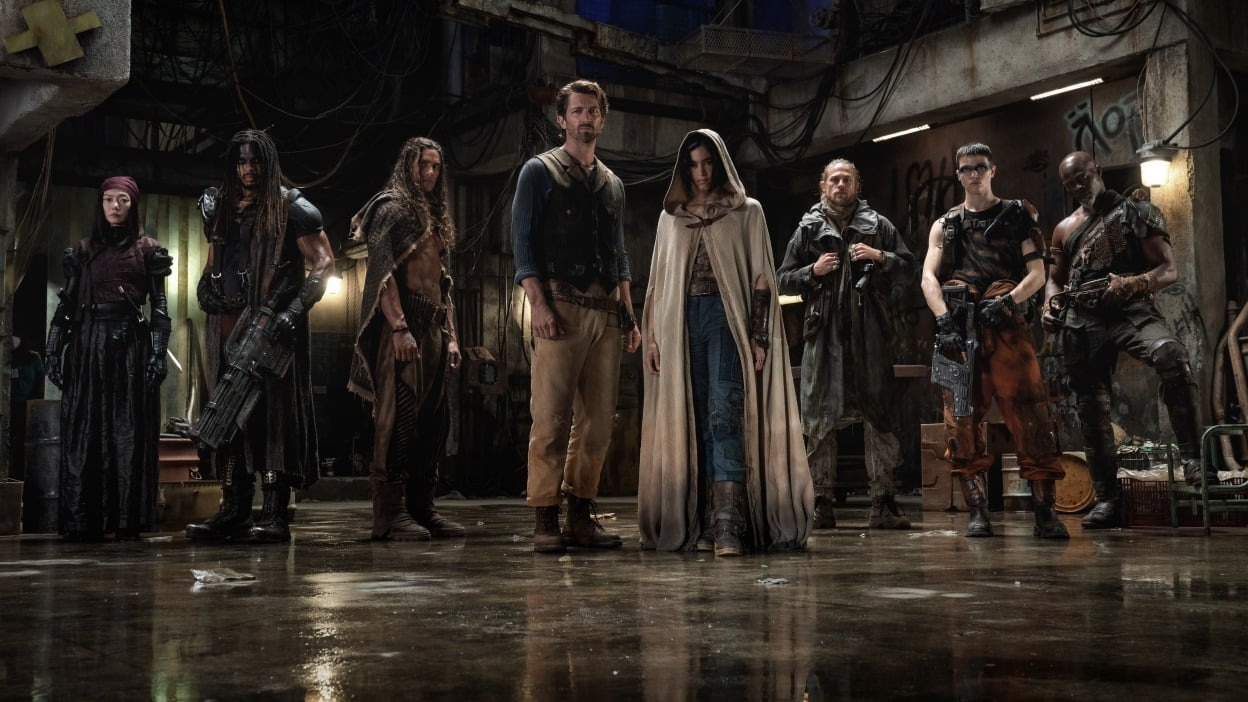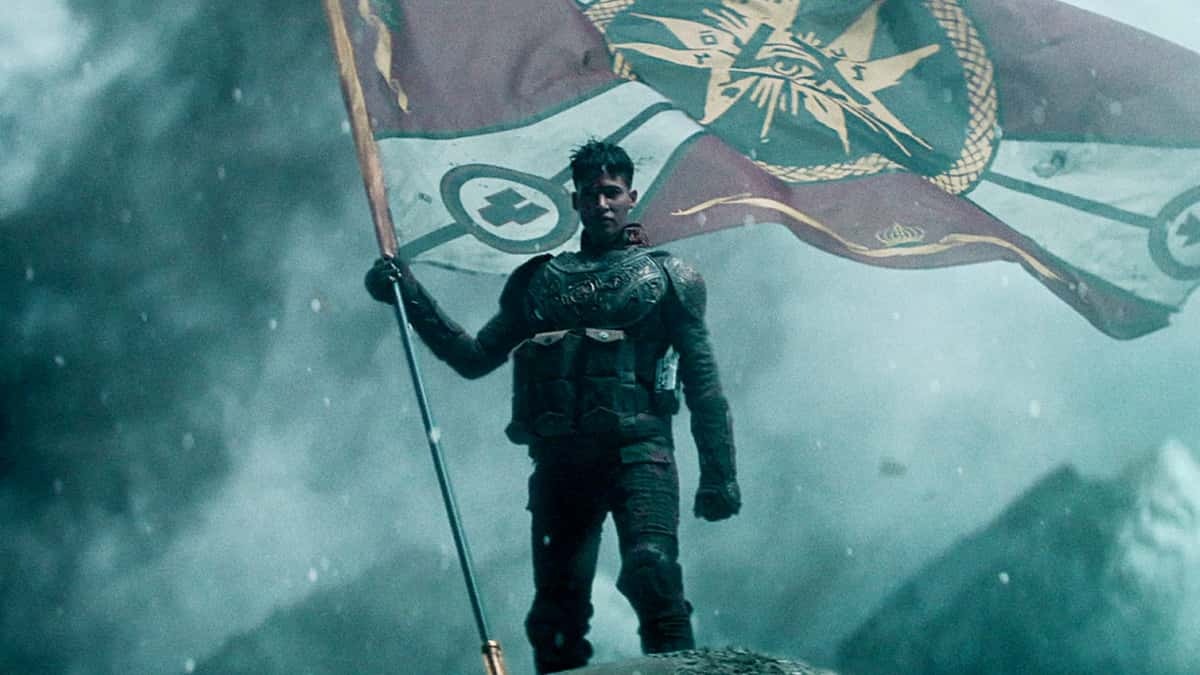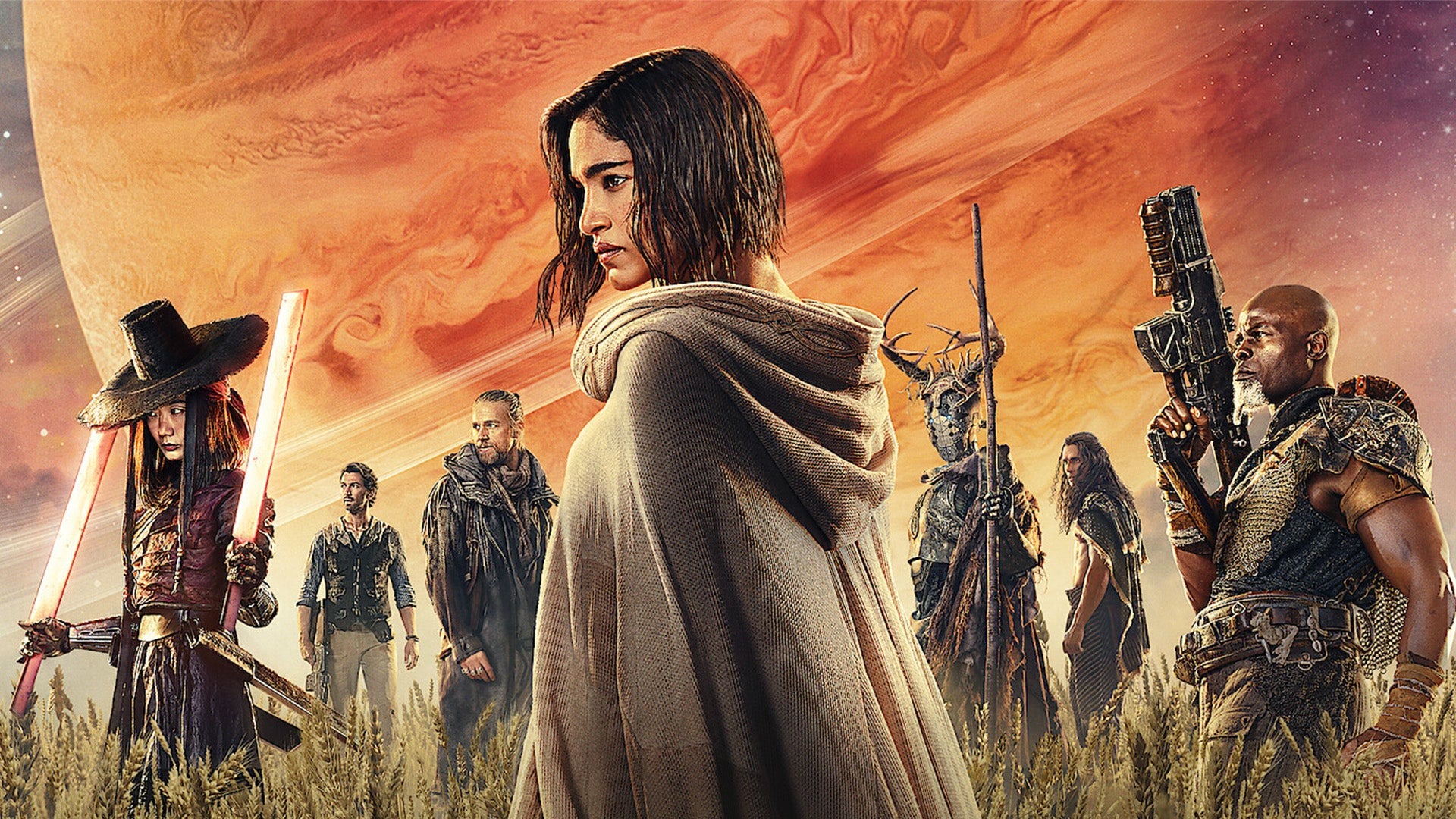Zack Snyder’s Rebel Moon initially started as an idea for a Star Wars film, so it’s no surprise that the storyline includes an authoritarian empire ruling over the galaxy with extreme force. Against this oppressive system, a group of rebels begins to form, starting from the small agricultural moon of Veldt.
The turning point comes when Admiral Noble (Ed Skrein) arrives on the moon and forcefully takes most of the farmers’ harvest, leaving them with almost nothing. The villagers hesitate to retaliate until a brutal attack on one of the women occurs.

At this point, Kora (Sofia Boutella) takes matters into her own hands and eliminates the soldiers responsible. Kora, along with a fellow farmer, Gunnar—who secretly harbors feelings for her—decides they need reinforcements to stand a chance against the Imperium when they inevitably return.
This is where the influence of the Samurai becomes evident. Their search begins in a nearby settlement where they recruit a skilled pilot, Kai (Charlie Hunnam), who agrees to assist them in gathering more fighters.
Eventually, their growing resistance includes a former nobleman and blacksmith named Tarak, the cybernetic warrior Nemesis, the fallen General Titus, a soldier named Milus, and the rebel leaders Darrian and Devra Bloodaxe.
Just when it seems like the group has assembled a formidable force after traveling across different planets and narrowly avoiding Admiral Noble, an unexpected betrayal threatens everything they’ve built.
How does Rebel Moon Part 1 End?
One of the most surprising twists in the movie involves Kai, a man whose past should have made him an obvious ally. Like many of the rebels, he too had suffered at the hands of the Imperium when they ravaged his homeworld.
But rather than using that experience as motivation to stand against them, Kai made a different choice—one that would secure his survival at the cost of others. Instead of fighting those responsible for his people’s suffering, Kai aligns himself with them, occasionally turning in rebels for a bounty.
After Kora successfully brings together a strong team of warriors, she envisions a growing movement that could rally more people to rise against the Imperium. However, when the group arrives at Gondival alongside the Bloodaxe rebels to complete a deal, Kai betrays them.

He secretly informs the Imperium, revealing that Admiral Noble’s warship, the King’s Gaze, is already stationed nearby. Once the group is restrained, Kai makes it clear that his loyalty lies in self-preservation. He believes the safest course of action is to stay in the good graces of the Imperium rather than challenge them.
He even tries to convince Gunnar to switch sides. But instead of cowering, Gunnar stands up to Kai, killing him and setting Kora free. This sparks a chaotic battle, with Kora quickly releasing the other fighters. Despite the firefight, she finds Admiral Noble and engages him in brutal hand-to-hand combat.
Both fighters exchange heavy blows, but Kora eventually overpowers Noble. She turns his staff against him, flinging him off the platform to what appears to be his demise. With their enemy seemingly defeated, the rebels seize Kai’s ship and make their way back to Veldt.
However, things take a surprising turn when Imperium troops retrieve Noble’s body. As they connect him to a neural link, it becomes clear that he isn’t entirely human—he’s part machine, similar to Darth Vader in Star Wars.
During this process, Noble communicates with Regent Balisarius, who instructs him to capture Kora—his adopted daughter—and bring her back. Balisarius intends to execute her publicly as a warning to anyone who dares to oppose the Imperium.
What is Rebel Moon Part 1’s Rotten Tomatoes Score?
Rotten Tomatoes often reveals a stark difference between the opinions of critics and general audiences, and Rebel Moon: A Child of Fire is no exception. While critics have given it a low rating of 24%, audience ratings sit much higher at 60%.
This isn’t unusual, as film critics typically assess movies using different criteria compared to everyday viewers. Meanwhile, Zack Snyder has a loyal fan base that tends to support his work, regardless of the broader reception.
The same can be said for many other filmmakers or public figures with dedicated followings. At the end of the day, entertainment is subjective. What matters most is that people should be free to enjoy what they love without external opinions dictating their experience.



